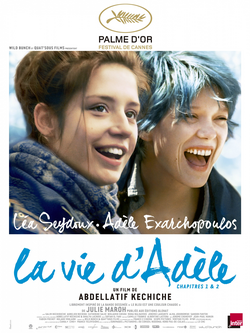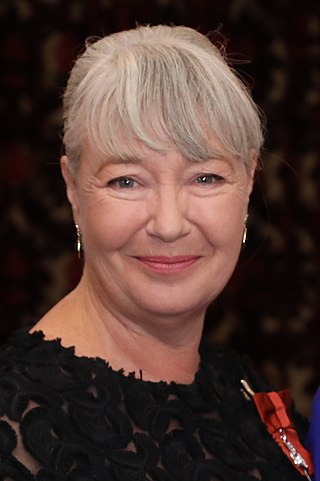
Vincent Ward is a New Zealand film director, screenwriter and artist.

Roger Lindsey Donaldson is an Australian and New Zealand film director, screenwriter, and producer. His 1977 debut film, Sleeping Dogs, is considered landmark work of New Zealand cinema, as one of the country’s first films to attract large-scale critical and commercial success. He has subsequently directed 17 feature films, working in Hollywood and the United Kingdom, as well as his native country.
Lisa Irene Chappell is a New Zealand actress and musician. She is known for her roles as Chelsea Redfern in Gloss (1987–1990), and as Claire McLeod in McLeod's Daughters (2001–2003), a performance which earned her two Logie Awards, for Most Popular New Female Talent and Most Popular Actress.
Michael Eric Hurst ONZM is a British-born New Zealand actor, director and writer. He is known internationally for acting in the television programs Hercules: The Legendary Journeys and companion series Xena: Warrior Princess as Iolaus. Most recently, he is known for his role in directing the Starz series Spartacus: Blood and Sand and Ash vs Evil Dead.

Nikola Jean Caro is a New Zealand film, television, and music video director and screenwriter. Her 2002 film Whale Rider was critically praised and won a number of awards at international film festivals. She directed the 2020 live action version of Disney's Mulan, making her the second female and the second New Zealand director hired by Disney to direct a film budgeted at over $100 million. Caro's works ranged from music videos, commercials, television dramas, and films, etc.

Smash Palace is a 1981 New Zealand psychological crime thriller directed by Roger Donaldson. The film chronicles Al, a retired race car driver who runs "Smash Palace", a carwrecking yard in rural Manawatū-Whanganui, with his depressed French wife and their seven-year-old daughter Georgie. After their turbulent marriage breaks down and his wife obtains a restraining order against him, Al kidnaps Georgie and descends into the rainforest.

Bread and Roses is a 2000 film directed by Ken Loach, starring Pilar Padilla, Adrien Brody and Elpidia Carrillo. The plot deals with the struggle of poorly paid janitorial workers in Los Angeles and their fight for better working conditions and the right to unionize. It is based on the "Justice for Janitors" campaign of the Service Employees International Union (SEIU), and the lead union organizer, Sam Shapiro, is based on SEIU organizer Jono Shaffer.
Cinema of Unease: A Personal Journey by Sam Neill is a documentary about the history of New Zealand cinema written by Sam Neill and co-directed by Neill and Judy Rymer. The film was released in 1995, and was New Zealand's contribution to the British Film Institute's Century of Cinema series. The title refers to the dark and brooding nature of many of New Zealand's most notable films, which Neill considers a reflection of the nation's struggle to find, or form, its own identity. The film screened in the 1995 Cannes Film Festival, and won Best Documentary in the 1996 TV Guide Film and Television Awards of New Zealand.

Jennifer Cecily Ward-Lealand is a New Zealand theatre and film actor, director, teacher and intimacy coordinator. She has worked for 40 years, appearing in over 120 theatre performances: Greek, Shakespeare, drama, comedy, devised, and musical theatre. Her screen credits include the 1993 movie Desperate Remedies as well as appearances in The Footstep Man, the soap Shortland Street and Australian comedy series Full Frontal.

Peter Northe Wells was a New Zealand writer, filmmaker, and historian. He was mainly known for his fiction, but also explored his interest in gay and historical themes in a number of expressive drama and documentary films from the 1980s onwards.
Geeling Ng is a New Zealand model, actress and restaurateur. She is best known as the title character in the English rock musician David Bowie's 1983 music video for his worldwide hit single "China Girl". She was a 23-year-old cook, in the salad section, at The Bayswater Brasserie in Sydney, with no acting experience when she auditioned for the role. Following her appearance in the video, the two had a brief affair. She has appeared in Mad Max Beyond Thunderdome (1985), Illustrious Energy (1988) and Desperate Remedies (1993). She was a host of the music television show Kulture Shock.

Blue Is the Warmest Colour is a 2013 romantic drama film co-written, co-produced, and directed by Abdellatif Kechiche and starring Léa Seydoux and Adèle Exarchopoulos. The film follows Adèle (Exarchopoulos), a French teenager, who discovers desire and freedom when Emma (Seydoux), an aspiring painter, enters her life. It depicts their lesbian sexual relationship from Adèle's high school years to her early adult life and career as a schoolteacher. The film's premise is based on the 2010 graphic novel of the same name by Jul Maroh.
Claudette Hauiti is a New Zealand journalist, broadcaster and political commentator. She was the producer of the award winning programme Children of the Revolution. Hauiti was a New Zealand politician and member of the House of Representatives in 2013 and 2014 as a member of the National Party.

Rachel Jessica Te Ao Maarama House is a New Zealand actress and director. She is best known for her roles in the films of Taika Waititi. and has received numerous accolades including an Arts Laureate, NZ Order of Merit, 'Mana Wahine' from WIFT NZ and Te Waipuna a Rangi for her contributions as an actor and director.
Louis Sutherland is a New Zealand film, television and advertising director and actor. He is of Samoan and Scottish descent, and based in Wellington.

Fiona Samuel is a New Zealand writer, actor and director who was raised Scotland from 1961 until the age of five. She moved to New Zealand and grew up in Christchurch before moving to Wellington to train as an actor at the New Zealand Drama School. She graduated from Toi Whakaari: New Zealand Drama School in 1980 with a Diploma in Acting. Samuel's award-winning career spans theatre, film, radio and television.

Jackie van Beek is a New Zealand film and television director, writer and actress.
Vanessa Alexander is an Australian, New Zealand and British screenwriter, director and producer best known for writing on Vikings: Valhalla and The Great.
Gone Up North for a While is a 1972 New Zealand film directed by Paul Maunder.











